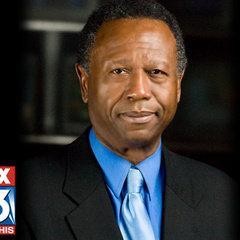This is not a threat. It is more a cry, a lament for a city I have come to embrace for more than 30 years. Consider this a pre-farewell to Memphis, but with a few caveats thrown in.

My wife and I made a decision a few months back to earnestly begin preparations to leave Memphis and retire to the country of Belize. It’s not like it’s going to happen for a couple of years, because of our job commitments, but this May we’re doing a scouting trip to see firsthand if this is truly where we want to spend what’s left of our “golden years.” The prospect of leaving my sons, her daughter, and our grandchildren comes with natural trepidations. But, then when you weigh the alternatives based on what we’ve seen and what we project will be the future for us in a city with a myriad of problems and few solutions, it only seems to make our choice clearer.
Sometimes making hard decisions can be as simple as getting out a pen and paper and listing the pros and cons, in this case, for either staying or leaving.
What if we stay? There’s the great probability we will be paying increased city property taxes, based on a proposed refinancing plan advanced by Memphis Mayor A C Wharton’s administration. The “scoop and toss” refinance strategy of dealing with the city’s mounting debt, if passed by the city council, most assuredly will hang like an albatross around the necks of taxpayers for the rest of this decade. To refinance $134 million in debt and borrow another $75 million to keep us solvent can only lead to higher taxes and cuts in services.
The apparent tacit approval of this plan by the same state comptroller who rattled our cages about “kicking the can down the road” when it came to addressing outstanding pension debt just last year, should be viewed as both curious and alarming. This is completely aside from Shelby County Mayor Mark Luttrell’s straightforward assessment that unless Insure Tennessee is resurrected in some fashion, county property taxes might have to cover the possible $70 million shortfall Regional One might face as it’s forced to deal with unreimbursed indigent-care costs. Do we want to stay around for all that to happen?
The upcoming 2015 city election and the slate of announced candidates running for mayor and city council positions offer little hope of changing the status quo. The leadership vacuum we’ve suffered from continues to create a huge “sucking” sound of desperation. Crime continues to be a problem; poverty remains a stifling detriment to our city’s growth potential; and the gap between the haves and the have-nots cripples any vision of attaining the “One Memphis” philosophy our feel-good mayor once espoused. As for challengers, I’ve heard nothing but criticism for the incumbent, but little in the way of concrete solutions advanced by any of them. Granted the economic picture is somewhat brighter, except it will take years to develop an educated workforce that’ll benefit from any influx of higher playing businesses.
Before I completely assume the role of Oscar the Grouch, let me tell you why it’s going to be hard to leave Memphis. Where else in this country are you going to find a city with such rich history and an open appreciation of it? We are a city that embraces both champs and chumps. We are a city with an unmatched musical heritage that could be enhanced if we encouraged and fostered new artists to make their careers blossom here, as others have before. We are a city that plays as hard as we work and does both without apologies to anyone. We are a city that mercilessly lampoons stupidity and loudly cries foul against perceived bigotry and racism, while still able to reach out with genuine compassion to our own or to strangers in need.
As I said, we still have a couple of years left in the “City of Good Abode.” In that time, as a reporter, I’ll continue to try to do stories that inspire us, enrage us, and expose the human condition, and in the process hopefully make a difference. I am very blessed to have the twin swords of television and print media to accomplish those goals. Our ties to Memphis will always be eternal. Then again, who knows? I hear the mosquitos grow pretty big in Belize. If so, that could be a big one on the con side.
